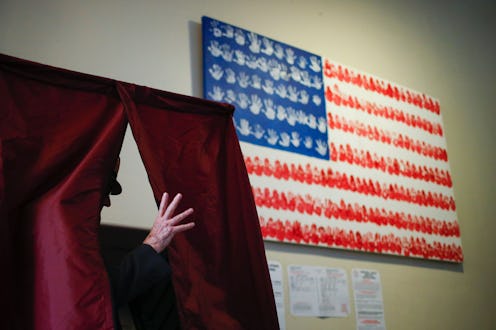News
Undecided Voters May Matter Less Than You Think
The election is just six weeks away, and Hillary Clinton and Donald Trump are roughly tied in the polls. The closeness of this race has made so-called undecided voters a hot topic of debate. So, how many undecided voters are there, and could they ultimately tip the election to one candidate or the other?
This is a tricky question, and any answer is potentially controversial. Nevertheless, national polling gives us a rough idea of how many voters haven’t made their minds up between Clinton and Trump: According to Huffington Post’s average, 4.2 percent of voters around the country are currently undecided. Opinion polls on elections are almost always conducted amongst either registered or likely voters, and there are around 142 million registered voters in the U.S..
If we extrapolate the share of undecided voters to the entire pool of registered voters in the U.S., that would imply that there are around 5.9 million undecided voters in the country. If, instead, we only look at the slice of registered voters who actually get out and vote — around 92 million as of 2014 — we would conclude that there are about 3.8 million undecideds who will actually choose to vote in this election.
Make sense? Now, for the caveats.
For one, the share of undecided voters generally oscillates between around 4 and 10 percent, depending on the survey. That means the true number of undecideds could be more than twice as big as the above analysis would suggest.
More importantly, though, some of these undecided voters may be a bit more decided than they’re letting on. A lot of undecided voters are registered to one of the two major parties, and those people almost always end up voting for that party. A New York Times analysis of the 2012 election found that around 40 percent of undecided voters were registered Democrats or Republicans, and that 94 percent of them (in both groups) voted for the party with which they were registered.
Last but not least, it bears noting that almost half of all undecided voters in 2012 remained undecided until after the polls closed — that is, they didn’t vote.
So, do undecided voters still matter? Sure, but not as much as we might initially think. Undecided voters appear to be either less undecided than they claim and also less inclined to vote than the populace at large.
Both of these conclusions, if true, would imply that campaigns shouldn’t necessarily devote too many resources into persuading undecided voters. A lot of them don’t seem to be very persuadable, and an even bigger portion of them won’t be voting on election day regardless. When it comes to winning elections, it may be wiser to focus on turning out existing supporters than creating new ones.
